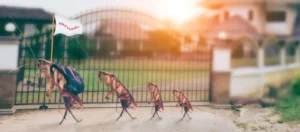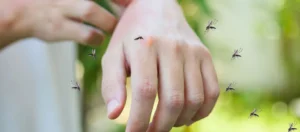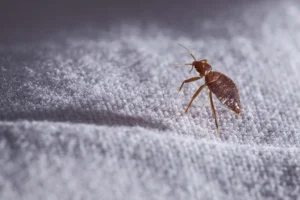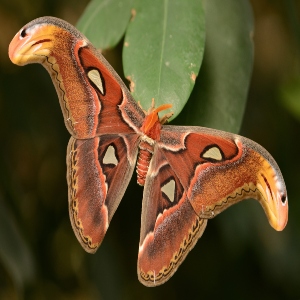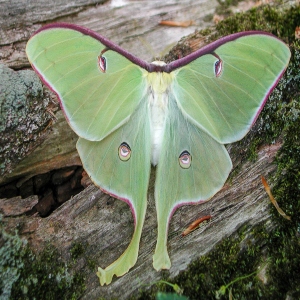- Clothes Moths:
- Adult Stage: During their adult stage, clothes moths are relatively harmless to humans as they primarily feed on flower nectar and do not pose a significant threat. They are often seen fluttering around outdoor areas where flowers are abundant.
- Larval Stage: It’s the larval stage of clothes moths that causes significant damage. Clothes moth larvae are voracious eaters and feed on a variety of materials, including wool, silk, fur, feathers, and even synthetic fibers. They are particularly attracted to items made of animal fibers, such as wool sweaters, fur coats, and silk garments. Larvae can cause extensive damage to upholstered furniture, clothes, curtains, carpets, and other household items made from these materials. They chew through fabrics, leaving behind holes and weakened areas, which can ruin valuable and cherished possessions.
- Pantry Moths:
- Behavior: Pantry moths, also known as Indian meal moths, are attracted to dry food products stored improperly in kitchens and pantries. They feed exclusively on starchy and sugary foods, including grains, flour, cereals, nuts, dried fruits, and spices.
- Damage: Pantry moth larvae infest stored food products, contaminating them with their silk webbing and feces. This can render food items unfit for consumption and result in financial losses as contaminated food must be discarded. Additionally, pantry moths can cause frustration and inconvenience for homeowners who must deal with cleaning and disposing of infested food items.
Given the potential damage and nuisance caused by both clothes moths and pantry moths, prompt action is necessary to address infestations. Professional pest control services, such as those offered by City Pest Control, can effectively eliminate moth infestations and prevent future occurrences. By booking a moth pest control appointment, homeowners can safeguard their belongings and maintain a pest-free environment in their homes.

